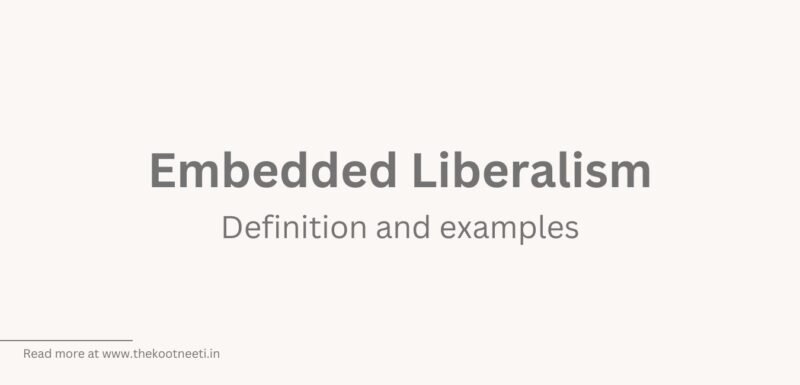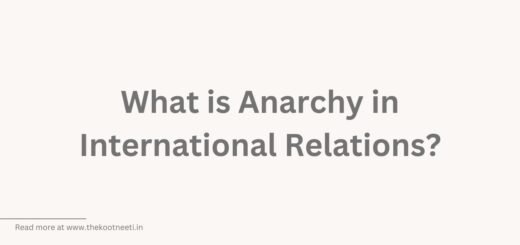Embedded Liberalism: Definition and examples

Embedded liberalism is a theory in international relations that suggests that the global economy is shaped by a combination of state power and international institutions, and that these institutions serve to “embed” the international economic system within a framework of rules and norms that promote cooperation and stability.
According to the theory of embedded liberalism, the international economic system is not simply driven by market forces, but is also shaped by the actions of states and international organizations. These actors use a variety of means, including international institutions and agreements, to promote cooperation and stability within the system.
The theory of embedded liberalism emerged in the aftermath of World War II and was developed in response to the failures of the interwar period, when the global economy was characterized by instability and protectionism. It has been influential in shaping the post-war international economic system and has informed the design of international institutions such as the International Monetary Fund and the World Trade Organization.
Some examples of embedded liberalism in practice include:
- International Monetary Fund (IMF): The IMF is an international organization that provides financial assistance to member countries in times of economic crisis and promotes international economic cooperation. The IMF operates according to a set of rules and norms that are designed to promote stability and cooperation within the global economic system.
- World Trade Organization (WTO): The WTO is an international organization that promotes international trade by establishing rules and norms for international trade and dispute resolution. The WTO’s rules and agreements are designed to promote cooperation and stability within the global economic system.
- Bretton Woods institutions: The Bretton Woods institutions, including the IMF and the World Bank, were established after World War II to promote international economic cooperation and stability. These institutions operate according to a set of rules and norms that are designed to promote cooperation and stability within the global economic system.
- Regional trade agreements: Many regional trade agreements, such as the North American Free Trade Agreement (NAFTA) and the European Union (EU), are also examples of embedded liberalism, as they involve the establishment of rules and norms to promote cooperation and stability within a specific region.
Overall, these examples illustrate how the international economic system is shaped by a combination of state power and international institutions that operate according to rules and norms designed to promote cooperation and stability.
In digital era
In the digital era, embedded liberalism has been applied to the globalization of the digital economy. This has involved the adoption of policies and regulations that promote the free flow of information and ideas, while also protecting the rights of individuals and communities. For example, these policies might include measures to protect privacy and data security, or to ensure that access to the internet and other digital technologies is more widely available.
The concept of embedded liberalism in the digital era reflects a recognition of the need to balance the benefits of globalization and technological change with the need to address social and environmental concerns.
Different from Neo-liberalism
Neoliberalism is a political and economic ideology that advocates for minimal government intervention in the economy, and for the promotion of free trade and free markets. Neoliberalism is based on the belief that the market is the most efficient means of allocating resources, and that governments should only intervene in the economy to protect private property rights and ensure the stability of the financial system.
Neoliberalism has influenced economic and political policy in many countries since the 1970s. It has been associated with the deregulation of industries, the privatization of state-owned enterprises, and the reduction of trade barriers.
Critics of neoliberalism argue that it can lead to income inequality and social injustice, as it prioritizes the interests of businesses and the wealthy over those of workers and the poor. Supporters of neoliberalism argue that it promotes economic growth and individual freedom.
Neoliberalism remains a controversial and influential ideology in contemporary political and economic debates.


















